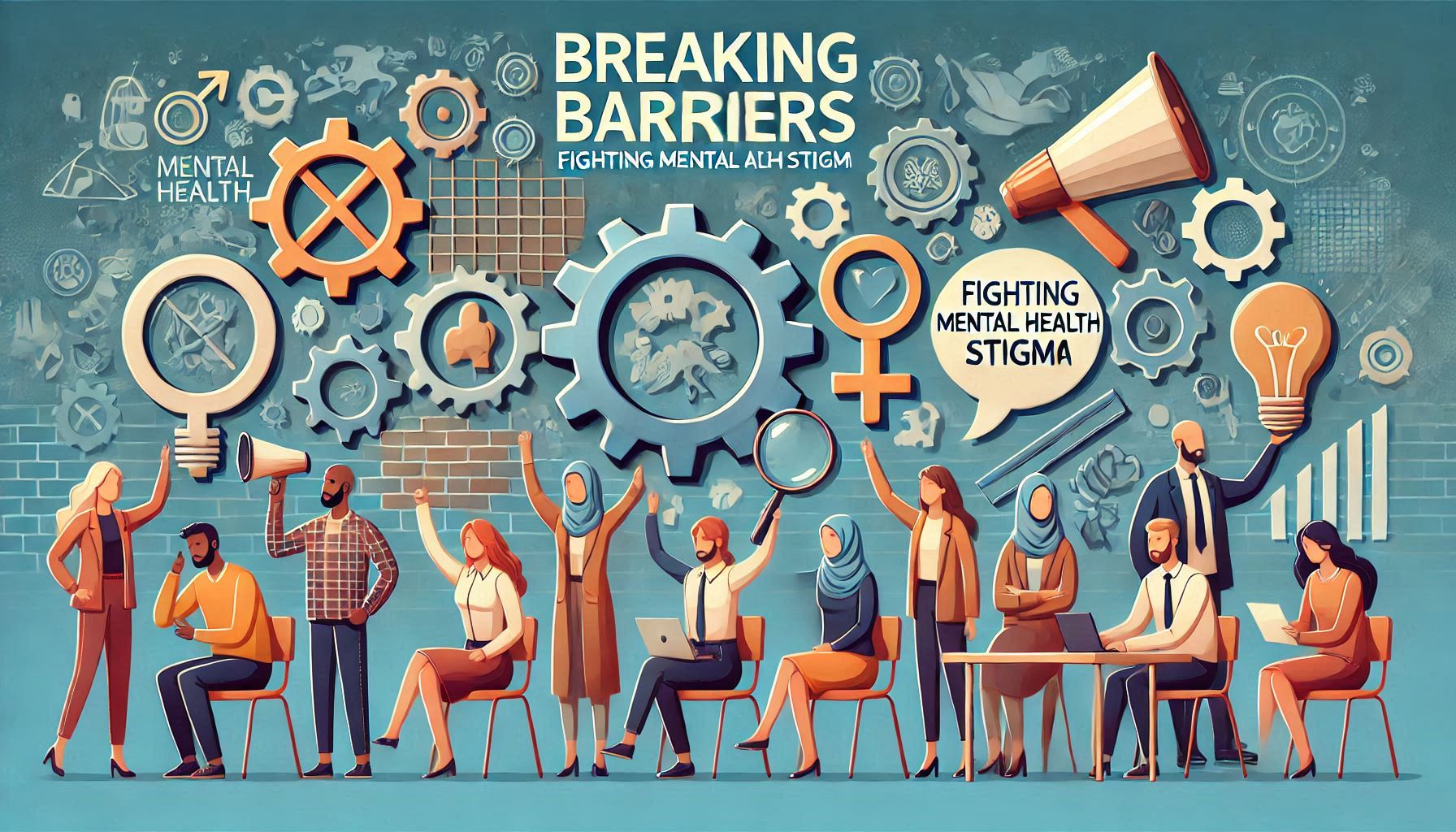Economic uncertainty is a pervasive element of modern life, influencing individuals, families, communities, and societies at large. From fluctuations in job security to the volatility of financial markets, economic uncertainty can induce a variety of psychological effects. This article explores the multifaceted impact of economic uncertainty on mental health, examining how it affects individual behavior, emotional well-being, and social dynamics.
Understanding Economic Uncertainty
Definition and Context:
Economic uncertainty refers to the unpredictability associated with the economic environment, including factors like job stability, income levels, inflation, and overall economic growth. It can arise from various sources, including political instability, global crises (such as pandemics), changes in government policies, and market fluctuations. During periods of economic uncertainty, individuals often face challenges that can lead to heightened anxiety and stress.
Historical Perspective:
The psychological effects of economic uncertainty have been observed throughout history. Events like the Great Depression, the 2008 financial crisis, and the COVID-19 pandemic have demonstrated how economic turmoil can deeply affect mental health. Understanding these historical contexts helps in recognizing the potential consequences of current economic conditions.
Psychological Responses to Economic Uncertainty
1. Anxiety and Stress:
Economic uncertainty can trigger significant anxiety and stress. Individuals may worry about job security, financial stability, and the ability to provide for their families. This constant state of worry can lead to chronic stress, which has well-documented negative effects on mental and physical health.
Mechanisms of Anxiety:
- Fear of the Unknown: Uncertainty breeds fear, as individuals struggle to predict their future circumstances. This fear can manifest in various ways, including panic attacks and generalized anxiety disorder.
- Rumination: People often ruminate on potential negative outcomes, which exacerbates feelings of helplessness and anxiety.
2. Depression:
Prolonged economic uncertainty can contribute to feelings of hopelessness and despair, leading to depression. Job loss or financial strain can diminish self-esteem and disrupt individuals’ sense of identity and purpose.
Symptoms of Depression:
- Loss of Interest: Individuals may lose interest in activities they once enjoyed, further isolating them during difficult times.
- Social Withdrawal: Economic strain can lead to social withdrawal, as individuals may feel ashamed or embarrassed about their financial situation.
3. Behavioral Changes:
Economic uncertainty can lead to significant changes in behavior. These changes may include increased risk-taking, impulsive decisions, or even avoidance behaviors.
- Risk-Taking Behavior: In response to anxiety, some individuals may engage in riskier financial behavior, such as investing in volatile stocks or taking on debt, hoping to improve their situation quickly.
- Avoidance Behavior: Conversely, others may withdraw from social interactions or avoid making financial decisions altogether, paralyzed by fear of negative outcomes.
4. Coping Mechanisms:
The psychological effects of economic uncertainty can also lead to the development of various coping mechanisms, both adaptive and maladaptive.
Adaptive Coping Strategies:
- Seeking Support: Individuals may seek support from friends, family, or mental health professionals, which can foster resilience.
- Problem-Solving: Proactively addressing financial issues through budgeting or exploring new job opportunities can mitigate feelings of helplessness.
Maladaptive Coping Strategies:
- Substance Abuse: Some individuals may turn to alcohol or drugs as a means of escape, which can lead to further mental health issues.
- Avoidance: Ignoring financial problems or responsibilities can exacerbate stress and anxiety in the long run.
Social Implications of Economic Uncertainty
1. Strain on Relationships:
Economic uncertainty can create significant strain on personal relationships. Financial stress is a common source of conflict among couples and families.
Impact on Families:
- Increased Tension: Families facing financial difficulties may experience increased tension and arguments, which can lead to emotional distancing and resentment.
- Role Reversal: Changes in financial circumstances can disrupt traditional family roles, leading to confusion and conflict.
2. Community Dynamics:
The effects of economic uncertainty extend beyond individual families to impact communities. Areas facing high unemployment or economic instability may experience increased crime rates, substance abuse, and mental health crises.
Community Resilience:
- Support Networks: Strong community support networks can buffer the negative effects of economic uncertainty, providing individuals with resources and emotional support.
- Collective Action: Communities often respond to economic challenges through collective action, such as mutual aid groups or community initiatives aimed at alleviating financial strain.
3. Social Inequality:
Economic uncertainty disproportionately affects marginalized communities, exacerbating existing inequalities. Individuals from lower socioeconomic backgrounds may have fewer resources to cope with financial stress, leading to greater psychological distress.
Mental Health Disparities:
- Access to Care: Economic challenges can limit access to mental health services, compounding the psychological effects of uncertainty.
- Cumulative Disadvantage: Ongoing economic instability can create a cycle of disadvantage, perpetuating mental health disparities among marginalized groups.
Long-Term Psychological Effects
1. Chronic Stress and Health Issues:
Prolonged exposure to economic uncertainty can lead to chronic stress, which has serious implications for physical and mental health. Chronic stress is linked to various health problems, including cardiovascular disease, obesity, and immune dysfunction.
Stress Management:
- Resilience Training: Building resilience through stress management techniques, such as mindfulness and cognitive-behavioral strategies, can help individuals cope with ongoing uncertainty.
2. Impact on Future Decision-Making:
Experiences of economic uncertainty can shape individuals’ future decision-making processes. Fear and anxiety may lead to overly cautious behavior, affecting career choices, financial planning, and interpersonal relationships.
Risk Aversion:
- Hesitation to Invest: Individuals who have experienced economic hardship may become risk-averse, hesitant to invest in new opportunities or take on new challenges.
3. Influence on Life Satisfaction:
The cumulative effects of economic uncertainty can impact overall life satisfaction and well-being. Individuals may struggle to find fulfillment or happiness when faced with ongoing financial instability.
Mental Health Interventions
- Therapeutic Approaches: Addressing the psychological impact of economic uncertainty through therapy can help individuals reframe their experiences and develop healthier coping mechanisms.
Policy Implications
1. Mental Health Support:
Governments and organizations must recognize the psychological effects of economic uncertainty and provide appropriate mental health support. This includes funding for mental health services, outreach programs, and community support initiatives.
Accessible Resources:
- Telehealth Services: Expanding access to telehealth services can help individuals cope with mental health challenges, especially during periods of economic instability.
2. Economic Policies:
Policies aimed at reducing economic uncertainty, such as unemployment benefits, financial assistance programs, and job creation initiatives, can have a positive impact on mental health.
Economic Stability:
- Investing in Communities: Investing in community development and support can foster resilience and mitigate the psychological effects of economic uncertainty.
3. Public Awareness Campaigns:
Raising public awareness about the psychological effects of economic uncertainty can help reduce stigma and encourage individuals to seek help.
Educational Initiatives:
- Community Education: Providing educational resources about mental health and coping strategies can empower individuals to navigate economic challenges more effectively.
Challenges In Psychological Effects Of Economic Uncertainty:
The psychological effects of economic uncertainty present various challenges that impact individuals, families, communities, and policymakers. Here are some key challenges associated with this issue:
1. Increased Anxiety and Stress:
Constant Worry: Individuals often experience chronic anxiety about job security, financial stability, and future prospects, leading to mental health issues.
- Physical Health Effects: Prolonged stress can lead to physical health problems such as cardiovascular issues and weakened immune function.
2. Depression and Emotional Distress:
- Feelings of Hopelessness: Economic instability can lead to feelings of despair and depression, particularly among those facing job loss or financial strain.
- Social Isolation: Depression can cause individuals to withdraw from social interactions, exacerbating feelings of loneliness and isolation.
3. Behavioral Changes:
Risky Financial Behavior: Uncertainty can drive individuals to engage in impulsive financial decisions or risk-taking behaviors, hoping to improve their situations quickly.
- Avoidance: Some individuals may avoid addressing their financial problems altogether, leading to greater anxiety and distress.
4. Relationship Strain:
Conflict and Tension: Financial stress can lead to conflicts within families and partnerships, increasing relationship tension and reducing overall well-being.
- Role Reversals: Changes in income or job status can disrupt traditional family roles, leading to confusion and conflict.
5. Impact on Children and Families:
- Intergenerational Effects: Economic uncertainty can affect not only adults but also children, impacting their emotional well-being and development.
- Educational Disruptions: Families facing financial instability may struggle to provide adequate educational support for their children, affecting their future opportunities.
6. Community Impact:
Increased Crime and Substance Abuse: Areas with high economic uncertainty may experience rising crime rates and substance abuse as individuals seek ways to cope with their circumstances.
- Community Disengagement: Economic instability can lead to decreased community involvement, further isolating individuals.
7. Limited Access to Mental Health Resources:
- Barriers to Care: Economic uncertainty can limit access to mental health services, as individuals may prioritize immediate financial needs over mental health support.
- Stigma: There may be stigma associated with seeking mental health care, particularly in communities already facing economic challenges.
8. Policy and Economic Challenges:
- Ineffective Responses: Policymakers may struggle to address the root causes of economic uncertainty and its psychological effects, leading to inadequate support systems.
- Long-Term Economic Impact: Ongoing uncertainty can hinder economic recovery, perpetuating a cycle of mental health issues and financial instability.
9. Uncertainty in Future Planning:
- Difficulty in Decision-Making: Individuals may find it challenging to make long-term plans, affecting their career choices, financial planning, and personal relationships.
- Increased Risk Aversion: Past experiences of economic hardship may lead to greater risk aversion, hindering individuals from pursuing opportunities that could improve their situations.
These challenges highlight the urgent need for comprehensive strategies to address the psychological effects of economic uncertainty. By recognizing and addressing these issues, we can support individuals and communities in navigating the complexities of financial instability and its impact on mental health.
Conclusion
The psychological effects of economic uncertainty are profound and far-reaching, impacting individuals, families, and communities. As economic conditions continue to fluctuate, recognizing and addressing these effects is crucial for promoting mental health and well-being. By implementing supportive policies, providing accessible mental health resources, and fostering community resilience, we can help individuals navigate the challenges of economic uncertainty and mitigate its psychological impact. Understanding the interplay between economic factors and mental health will be essential for creating a more stable and supportive environment for all.
SOURCES
American Psychological Association. (2020) – Stress in America: A national mental health crisis.
Fiksenbaum, L. M. (2019) – Economic uncertainty, financial strain, and mental health: A review of the literature. Journal of Economic Psychology.
Gili, M., Serrano-Blanco, A., Roca, M., & Moneta, M. V. (2013) – Economic crisis and mental health: The role of social support. International Journal of Social Psychiatry.
Kessler, R. C., & Bromet, E. J. (2013) – The epidemiology of depression across cultures. Annual Review of Public Health.
MacLeod, J., & Clarke, J. (2009) – A social model of mental health: The implications of economic and social factors for mental health. Mental Health Review Journal.
Phelan, J. C., & Link, B. G. (2015) – Is stigma a social product? A new perspective on mental illness stigma. Social Science & Medicine.
Shah, A. A., & Bhasin, M. (2021) – Economic uncertainty and mental health during COVID-19: A systematic review. Journal of Affective Disorders.
Van Praag, B. M. S., & Ferrer-i-Carbonell, A. (2004) – Happiness in nations: Subjective economic well-being in 55 countries. Journal of Happiness Studies.
HISTORY
Current Version
October 19, 2024
Written By:
BARIRA MEHMOOD



